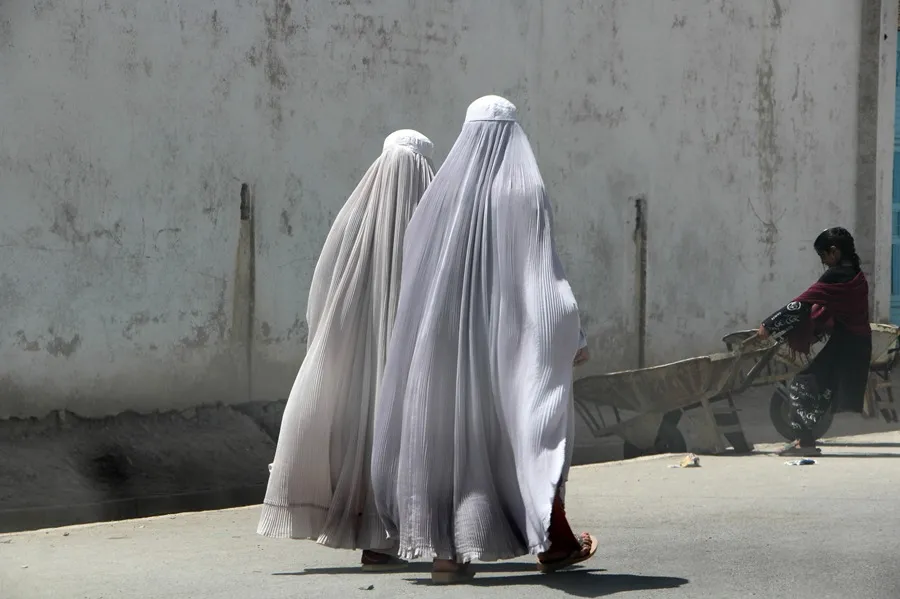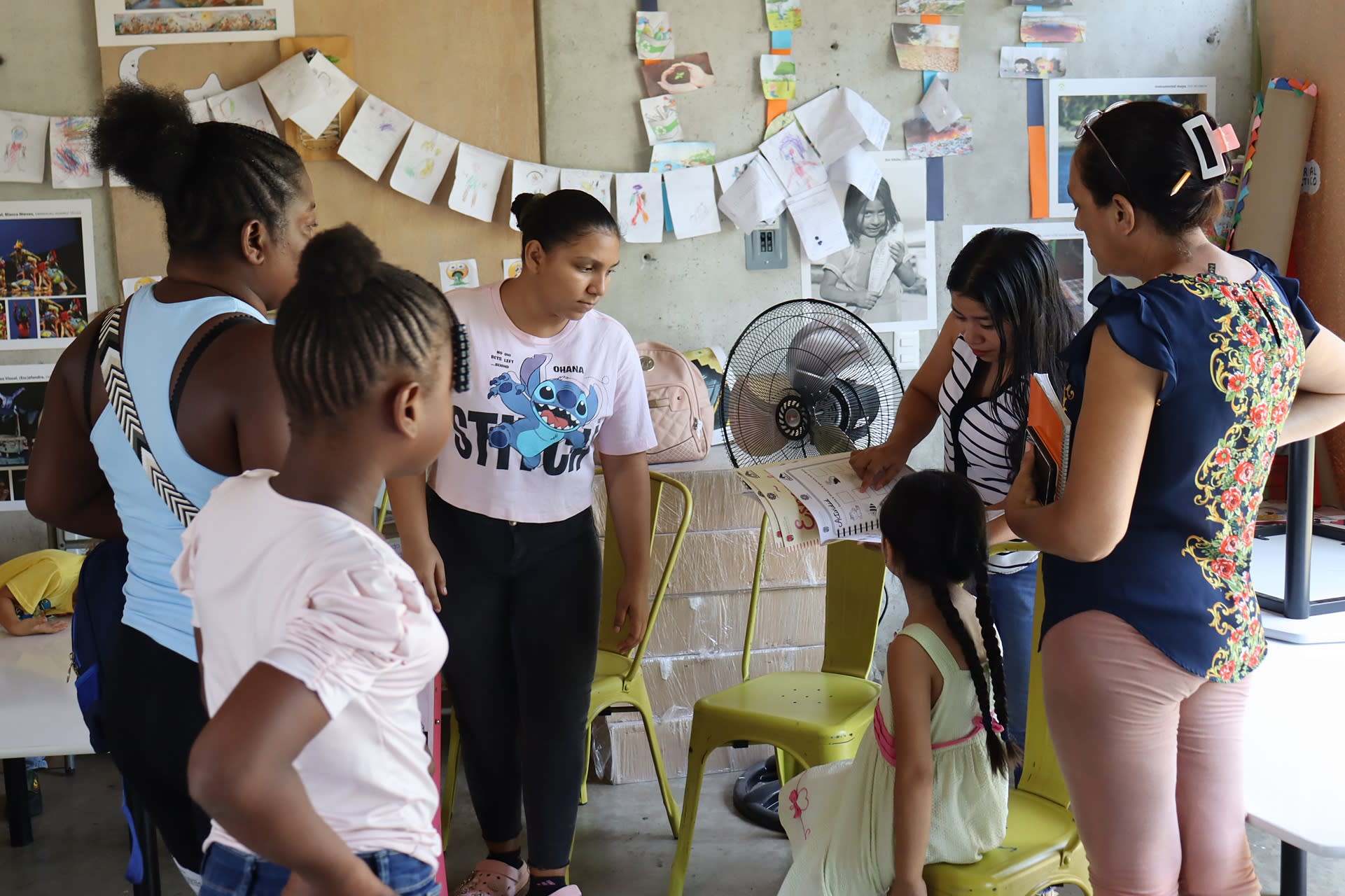International
The Prosecutor of the International Criminal Court asks for arrest warrants for two Taliban leaders for gender persecution in Afghanistan

The prosecutor of the International Criminal Court (ICC), Karim Khan, requested on Thursday the judges to approve two arrest warrants, one against the supreme leader of the Taliban, Haibatullah Akhundzada, and another against the president of the Supreme Court, Abdul Hakim Haqqani, for persecution on gender reasons in Afghanistan.
The prosecutor claims to have “reasonable reasons” to consider both “criminally responsible” for a crime against humanity throughout the territory of Afghanistan since August 15, 2021 for persecuting Afghan girls and women, and people whom the Taliban perceived as “not in accordance with their ideological expectations of identity or gender expression,” or “as allies of girls and women.”
“This ongoing persecution entails numerous and serious deprivations of the fundamental rights of victims, contrary to international law, including the right to physical integrity and autonomy, freedom of movement and expression, education, private and family life and freedom of assembly,” Khan denounced.
In addition, the prosecutor stressed that perceived resistance or opposition to the Taliban “was, and is, brutally repressed by committing crimes that include murder, imprisonment, torture, rape and other forms of sexual violence, enforced disappearance and other inhumane acts.”
These are the first arrest warrants requested by the prosecutor as part of his investigation into serious crimes in Afghanistan, although he assures that he will “soon file more requests for other senior Taliban officials.”
Among the evidence his office is audiovisual material, official decrees, forensic reports, as well as testimonies from experts and witnesses, and statements from the suspects themselves and other representatives of the Taliban.
“These requests recognize that Afghan women and girls, as well as the LGBTQI+ community, face unprecedented, inadmissible and ongoing persecution by the Taliban. Our action indicates that the status quo for women and girls in Afghanistan is not acceptable. Afghan survivors, particularly women and girls, deserve to be held accountable to a court of justice,” the prosecutor warned.
At the end of November, Chile, Costa Rica, Spain, France, Luxembourg and Mexico expressed their “concern about the serious deterioration of the human rights situation in Afghanistan, especially for women and girls” and asked the prosecutor to consider “the crimes against women and girls” committed by the Taliban.
Khan assured them that gender persecution is already included in his investigation and promised to announce results “soon.”
“The interpretation of Sharia by the Taliban should not and cannot be used to justify the deprivation of fundamental human rights or the commission of related crimes contemplated in the Rome Statute (ICC treaty),” he warned on Thursday, waiting for the judges to authorize the arrest warrants against the Taliban leaders.
In 2020, the ICC prosecutor’s office obtained unanimous authorization from judges to begin investigating alleged crimes committed in the territory of Afghanistan since 1 May 2003, as well as crimes related to the armed conflict and the situation in Afghanistan, which were committed in the territory of other States party to the ICC since July 2002.
The previous Afghan government challenged the admissibility of the investigation, but on October 31, 2022, after the Taliban seized power, the prosecutor’s office has resumed the case and “has been carrying out an independent, impartial and solid investigation” of the crimes in Afghanistan.
However, Khan will only focus his efforts on investigating the crimes allegedly committed by the Taliban and the Islamic State subsidiary (IS-Khorasan) group, leaving other aspects in the background, such as the alleged crimes committed by American soldiers.
Central America
Trump Administration Asks Supreme Court to Block Return of Deported Salvadoran

The Trump administration on Monday asked the U.S. Supreme Court to block a lower court order requiring the return of a Salvadoran migrant who was mistakenly sent to a maximum-security prison in El Salvador, despite having legal protection from deportation.
The U.S. government has until Monday to bring Kilmer Armado Ábrego García back to the United States, as ordered by Judge Paula Xinis in a Maryland court.
According to The Washington Post, the administration argues it lacks authority to comply because Ábrego García is currently in Salvadoran custody.
The U.S. had appealed Judge Xinis’ ruling to the Fourth Circuit Court of Appeals, but the court declined to act immediately—prompting the administration to take the case to the Supreme Court. In its filing, the government stated that “the Constitution entrusts the President, not federal district courts, with the conduct of foreign diplomacy and the protection of the nation from foreign terrorists, including through deportation.”
Ábrego García, a resident of Prince George’s County, Maryland, and married to a U.S. citizen, came under scrutiny in 2019 after an informant claimed he was a member of the MS-13 gang (Mara Salvatrucha).
Although he was initially slated for deportation, a judge later granted him a stay of removal after he requested asylum, according to the lawsuit.
Nevertheless, U.S. Immigration and Customs Enforcement (ICE) detained him on March 12, claiming his status had changed, and sent him to a detention center in Texas.
International
Teachers in Southern Mexico Bring Education to Stranded Migrant Children

Teachers in southern Mexico have created a program to provide classes for migrant children stranded in the region, following a year-over-year increase of over 70% in irregular migration among minors—many of whom lose months or even years of education during their journey toward North America.
In Tapachula, the largest Mexican city bordering Central America, three teachers offer preschool, elementary, and secondary education through the Chiapas State Migrant Education Program (Pemch).
This initiative has been replicated in key municipalities across Chiapas, including San Cristóbal de Las Casas, the capital Tuxtla Gutiérrez, Palenque, Comitán, and other border towns. Currently, there are around 1,345 migrant students and a total of 35 teachers working across farms and shelters.
Pablo Arriaga Velázquez, a teacher with the migrant education program in Tapachula, told EFE that the project was born in response to the large number of migrant minors, as enrolling them in regular schools is often difficult.
Central America
Mulino and Orsi Highlight Shared Vision After Panama Joins Mercosur as Associate State

The Presidents of Panama, José Raúl Mulino, and Uruguay, Yamandú Orsi, highlighted on Monday the path of integration both countries have undertaken in areas such as trade and the defense of democracy, following a meeting held at the Panamanian government headquarters.
In a brief statement to the press, both leaders emphasized that Panama and Uruguay share many values and are working together across different sectors. They also underlined a renewed connection following Panama’s accession last December to the Southern Common Market (Mercosur) as an Associated State.
“Panama has begun a new era of looking southward, seeking opportunities not only for work, business, and friendship, but also for regional integration in a positive sense. Today, I believe we have taken a decisive step in that direction,” said President Mulino.
The Panamanian leader stressed that his country and Uruguay “have much in common” and share “important values in terms of democracy, respect for institutions, and the rule of law—principles that must always be strengthened, no matter how much effort it takes.”
-

 Internacionales2 days ago
Internacionales2 days agoErik Prince Backs Ecuador’s Daniel Noboa in Fight Against Crime and “Narcoterrorism”
-

 Central America4 days ago
Central America4 days agoPanama’s former president Martinelli claims political enemies tried to kill him
-

 Central America2 days ago
Central America2 days agoGuatemala’s Legal Chief Shot Dead in Parking Lot: Investigation Underway
-

 International4 days ago
International4 days agoJavier Milei vows to work ‘side by side’ with the U.S. on trade rules
-

 Central America15 hours ago
Central America15 hours agoHonduras Hosts CELAC Summit Amid Regional Concern Over U.S. Deportations
-

 International15 hours ago
International15 hours agoTeachers in Southern Mexico Bring Education to Stranded Migrant Children
-

 Central America15 hours ago
Central America15 hours agoMulino and Orsi Highlight Shared Vision After Panama Joins Mercosur as Associate State
-

 Central America15 hours ago
Central America15 hours agoTrump Administration Asks Supreme Court to Block Return of Deported Salvadoran















